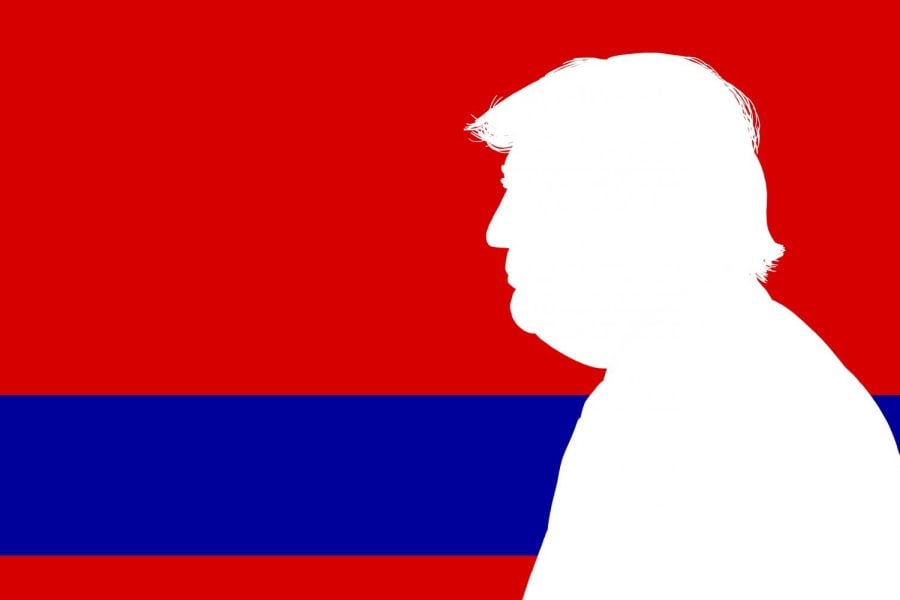Congress issued four criminal referrals against former President Trump. Here’s what it all means
Daily file illustration by Carly Schulman
Illinois nonprofit Free Speech For People petitioned to bar former President Donald Trump from appearing on the state primary and general election ballots, citing the 14th Amendment.
January 16, 2023
Congress issued four criminal referrals against former President Donald Trump last December related to the events of Jan. 6, 2021, including obstruction of an official congressional proceeding, conspiracy to defraud the government, conspiracy to knowingly make a false statement and inciting or assisting an insurrection.
While these referrals hold no legal weight, they indicate that Congress believes the Department of Justice should press charges based on the Jan. 6. committee’s findings. This is the first time Congress has criminally referred a former president.
The referrals come after 18 months of investigation. The Jan. 6 committee filed the findings with the DOJ, which will decide whether to move forward with the charges.
“Does it have any more power implicitly than a random referral from a citizen? No,” said Ben Chasen, Medill senior and NU College Democrats Public Relations Chair. “But (Congress has) access to information and witnesses that normal people would not have.”
Now, the power rests with Attorney General Merrick Garland and the DOJ, which is conducting its own investigations as well.
Trump also faces inquiries into his business practices. New York Attorney General Letitia James filed a fraud lawsuit against Trump, his company and three of his children in September.
“In light of the evidence in the public record and the charges and investigations underway, I think it’s highly likely that at least he will be convicted of civil charges, and possibly criminal charges as well,” political science Prof. Jacqueline Stevens said.
Stevens believes there will be backlash from the Republican party and Trump’s supporters if the DOJ moves forward with the charges, especially considering that the Jan. 6 investigations already received pushback.
Weinberg senior and NU Political Union co-president Will Secker said part of the reason the referrals have garnered so much attention is because the committee hearings were public.
“I’m anxious to see what the political response would be,” Secker said. “In the last year, Republicans in general, the populace and lawmakers, have been so generally opposed to this committee itself.”
Stevens said this type of situation is exactly why power is separated between branches of government.
She added that if Congress had the power to charge Trump, the fear of political backlash could affect the fairness of the proceedings. Because the DOJ is appointed and not elected, however, she said they can make a decision based on the evidence presented to them without being concerned about public opinion.
Trump’s indictment would be unprecedented: while previous presidents have been investigated, none have ever been criminally convicted or served jail time.
“You never believe that the president is going to do something like this,” Chasen said. “What happens here sets the stage for what is acceptable for people in power for the rest of the existence of America, and I think that that couldn’t be more important.”
Email: [email protected]
Twitter: @fionaroach03
Related Stories:
— Evanston political groups prepare for Illinois Governor’s Race primaries this June


